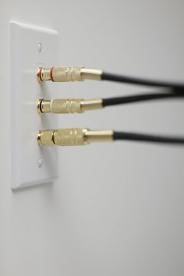Legislative Activity
Democratic Senators Voice Concerns Over Cable and Broadband Competition and Fees
On February 3, a group of six Democratic Senators, including Ron Wyden (D-OR), Bernie Sanders (D-VT), Jeff Merkley (D-OR), Al Franken (D-MN), Ed Markey (D-MA), and Elizabeth Warren (D-MA), wrote a letter to Federal Communications Commission (FCC) Chairman Tom Wheeler in which they argued that the lack of competition in the cable and broadband markets has negatively impacted fees and customer service. The group noted that, at least for broadband service, approximately 55 percent of consumers only have one high-speed broadband provider from which to choose. They also noted that during 2015, more than 30 percent of consumer complaints to the FCC about Internet service and 38 percent of complaints about TV service were regarding billing. They suggested that the lack of competition “has led to some troubling and questionable customer service and payment practices.” The group took direct aim at equipment rental charges, which they described as “one of the numerous and often obtuse fees” that consumers must pay and from which companies make millions of dollars every quarter. In particular, the lawmakers attested to hearing complaints of consumers being charged equipment fees after the equipment had been returned to the provider or in situations where the customer never rented equipment to begin with.
The Senators did not make a specific call for an investigation but did ask the FCC to answer several questions, including whether the FCC regulates erroneous equipment fees charged to consumers, whether there is a database of such erroneous charges, and what action has been taken by the FCC concerning consumer complaints of mistaken charges.
Regulatory Activity
FCC Dismisses Petitions for Reconsideration of Incentive Auction Application Procedures
On February 3, the FCC released an Order dismissing two petitions for reconsideration of the Broadcast Incentive Auction Application Procedures Public Notice (Procedures PN), which established the application procedures for the broadcast incentive auctions scheduled to being March 29. The petitions were filed by: (1) T-Mobile, and (2) PBP Group, LLC, Bulloch Cellular, Inc., Pineland Cellular, Inc., and Planters Rural Cellular, Inc. (collectively, PBP). The FCC dismissed both petitions as procedurally defective.
T-Mobile’s petition asked that the FCC declare that DISH Network, Northstar Wireless (Northstar), and SNR Wireless (SNR) are “former defaulters” under the FCC’s rules and “requir[e] that they provide a 50% higher upfront payment” to participate in the Incentive Auction. The FCC denied Designated Entity bidding credits to Northstar and SNR after the AWS-3 auction when the agency found those entities were under the de facto control of DISH Network. Northstar and SNR subsequently defaulted on licenses purchased in that auction. The FCC dismissed T-Mobile’s request as “outside the scope” of the Procedures PN, stating that the Procedures PN did not “make any determinations on whether specific conduct . . . would render a defaulter a former defaulter” or otherwise modify the “former defaulter rule[.]”
PBP’s petition asked the FCC to limit eligibility for rural service provider bidding credits to only those service providers “in the business of providing communications services[.]” The FCC found that the issue challenged by PBP had been resolved in the FCC’s Part 1 Report and Order released in July 2015, not in the Procedures PN released in October 2015, and so denied PBP’s petition as late filed.
Comments Due February 24 on FCC Proposal to Ensure Consumers Can Readily Access User Display Settings for Closed Captioning
On November 20, 2015, the FCC released a Second Report and Order, Order on Reconsideration, and Second Further Notice of Proposed Rulemaking taking “additional steps” to fulfill the goal of “making video programming accessible to individuals with disabilities on a wide range of consumer devices,” and also seeking comment on “a proposal to adopt rules that would require manufacturers and [multichannel video programming distributors (cable and satellite TV companies)] to ensure that consumers are able to readily access user display settings for closed captioning.” Pursuant to a publication in the Federal Register, comments on that proposal are now due February 24, and reply comments are due March 7.
Petitions for Reconsideration of FCC Determination as to When 600 MHz Band Licensees “Commence Operations” Due February 29
In the June 2, 2014 Incentive Auction Report and Order, the FCC adopted rules permitting low power TV stations, fixed broadcast auxiliary service operations, and unlicensed white space devices (collectively, “secondary and unlicensed users”) to continue operating in the 600 MHz band until such time as a wireless licensee that acquired the license in that area “commences operations” there. On October 22, 2015, the FCC released a Report and Order (Commencing Operations Report and Order) concluding that a wireless licensee is deemed to “commence operations” when the licensee “conducts site commissioning tests.” Site commissioning tests take place when a wireless base station is first put into operational use in that area.
The FCC issued a Public Notice on February 5 announcing that petitions for reconsideration of the Commencing Operations Report and Order are due February 29.





 i
i


